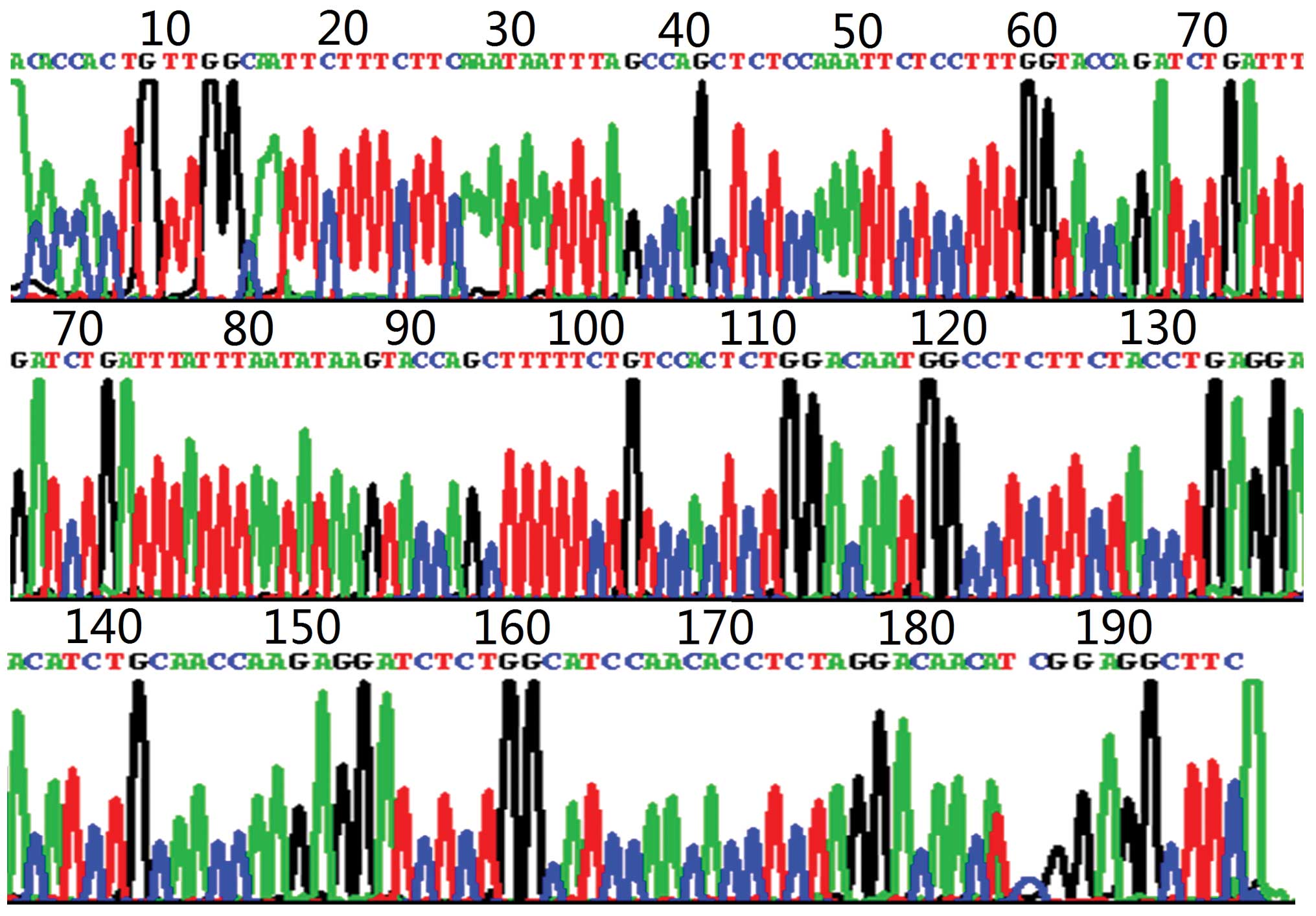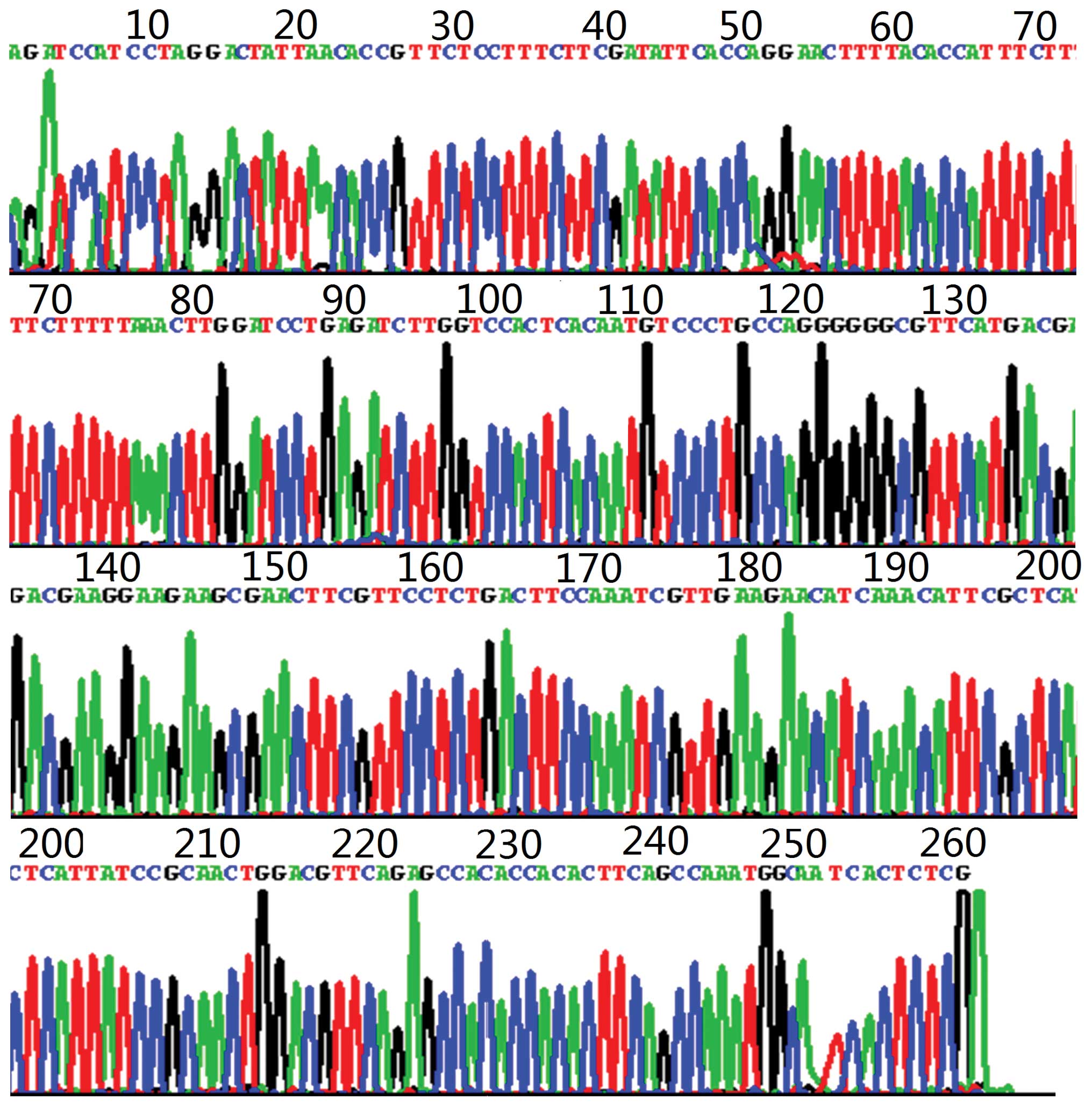|
1
|
Kepes JJ, Chen WY, Pang LC and Kepes M:
Tumors of the central nervous system in Taiwan, Republic of China.
Surg Neurol. 22:149–156. 1984. View Article : Google Scholar : PubMed/NCBI
|
|
2
|
Tsai RY and McKay RD: A nucleolar
mechanism controlling cell proliferation in stem cells and cancer
cells. Genes Dev. 16:2991–3003. 2002. View Article : Google Scholar : PubMed/NCBI
|
|
3
|
Riddihough G and Pennisi E: The evolution
of epigenetics. Science. 293:10632001. View Article : Google Scholar : PubMed/NCBI
|
|
4
|
Samuels-Lev Y, O’Connor DJ, Bergamaschi D,
Trigiante G, Hsieh JK, Zhong S, Campargue I, Naumovski L, Crook T
and Lu X: ASPP proteins specifically stimulate the apoptotic
function of p53. Mol Cell. 8:781–794. 2001. View Article : Google Scholar : PubMed/NCBI
|
|
5
|
Mampalam TJ, Tyrrell JB and Wilson CB:
Transsphenoidal microsurgery for Cushing disease. A report of 216
cases. Ann Intern Med. 109:487–493. 1988. View Article : Google Scholar : PubMed/NCBI
|
|
6
|
Qu J and Bishop JM: Nucleostemin maintains
self-renewal of embryonic stem cells and promotes reprogramming of
somatic cells to pluripotency. J Cell Biol. 197:731–745. 2012.
View Article : Google Scholar : PubMed/NCBI
|
|
7
|
Tsai RY and McKay RD: A multistep,
GTP-driven mechanism controlling the dynamic cycling of
nucleostemin. J Cell Biol. 168:179–184. 2005. View Article : Google Scholar : PubMed/NCBI
|
|
8
|
Sijin L, Ziwei C, Yajun L, Meiyu D,
Hongwei Z, Guofa H, Siguo L, Hong G, Zhihong Z, Xiaolei L, Yingyun
W, Yan X and Weide L: The effect of knocking-down nucleostemin gene
expression on the in vitro proliferation and in vivo tumorigenesis
of HeLa cells. J Exp Clin Cancer Res. 23:529–538. 2004.PubMed/NCBI
|
|
9
|
Bergamaschi D, Samuels Y, O’Neil NJ,
Trigiante G, Crook T, Hsieh JK, O’Connor DJ, Zhong S, Campargue I,
Tomlinson ML, Kuwabara PE and Lu X: iASPP oncoprotein is a key
inhibitor of p53 conserved from worm to human. Nat Genet.
33:162–167. 2003. View
Article : Google Scholar : PubMed/NCBI
|
|
10
|
Llanos S, Royer C, Lu M, Bergamaschi D,
Lee WH and Lu X: Inhibitory member of the apoptosis-stimulating
proteins of the p53 family (iASPP) interacts with protein
phosphatase 1 via a noncanonical binding motif. J Biol Chem.
286:43039–43044. 2011. View Article : Google Scholar
|
|
11
|
Lossos IS, Natkunam Y, Levy R and Lopez
CD: Apoptosis stimulating protein of p53 (ASPP2) expression differs
in diffuse large B-cell and follicular center lymphoma: correlation
with clinical outcome. Leuk Lymphoma. 43:2309–2317. 2002.
View Article : Google Scholar
|
|
12
|
Zhu Z, Ramos J, Kampa K, Adimoolam S,
Sirisawad M, Yu Z, Chen D, Naumovski L and Lopez CD: Control of
ASPP2/(53BP2L) protein levels by proteasomal degradation modulates
p53 apoptotic function. J Biol Chem. 280:34473–34480. 2005.
View Article : Google Scholar : PubMed/NCBI
|
|
13
|
Bergamaschi D, Samuels Y, Zhong S and Lu
X: Mdm2 and mdmX prevent ASPP1 and ASPP2 from stimulating p53
without targeting p53 for degradation. Oncogene. 24:3836–3841.
2005. View Article : Google Scholar : PubMed/NCBI
|
|
14
|
Wang Y, Godin-Heymann N, Dan Wang X,
Bergamaschi D, Llanos S and Lu X: ASPP1 and ASPP2 bind active RAS,
potentiate RAS signalling and enhance p53 activity in cancer cells.
Cell Death Differ. 20:525–534. 2013. View Article : Google Scholar : PubMed/NCBI
|
|
15
|
Wolfsberger S, Kitz K, Wunderer J, Czech
T, Boecher-Schwarz HG, Hainfellner JA and Knosp E: Multiregional
sampling reveals a homogenous distribution of Ki-67 proliferation
rate in pituitary adenomas. Acta Neurochir (Wien). 146:1323–1328.
2004. View Article : Google Scholar : PubMed/NCBI
|
|
16
|
Honegger J, Prettin C, Feuerhake F,
Petrick M, Schulte-Mönting J and Reincke M: Expression of Ki-67
antigen in nonfunctioning pituitary adenomas: correlation with
growth velocity and invasiveness. J Neurosurg. 99:674–679. 2003.
View Article : Google Scholar : PubMed/NCBI
|
|
17
|
Liu X, Ma S, Yao Y, Li G, Feng M, Deng K,
Dai C, Cai F, Li Y, Zhang B and Wang R: Differential expression of
folate receptor alpha in pituitary adenomas and its relationship to
tumor behavior. Neurosurgery. 70:1274–1280. 2012. View Article : Google Scholar : PubMed/NCBI
|
|
18
|
Saeger W, Lüdecke B and Lüdecke DK:
Clinical tumor growth and comparison with proliferation markers in
non-functioning (inactive) pituitary adenomas. Exp Clin Endocrinol
Diabetes. 116:80–85. 2008. View Article : Google Scholar : PubMed/NCBI
|
|
19
|
Rishi A, Sharma MC, Sarkar C, Jain D,
Singh M, Mahapatra AK, Mehta VS and Das TK: A clinicopathological
and immunohistochemical study of clinically non-functioning
pituitary adenomas: a single institutional experience. Neurol
India. 58:418–423. 2010. View Article : Google Scholar : PubMed/NCBI
|
|
20
|
Wolfsberger S, Wunderer J, Zachenhofer I,
Czech T, Böcher-Schwarz HG, Hainfellner J and Knosp E: Expression
of cell proliferation markers in pituitary adenomas - correlation
and clinical relevance of MIB-1 and anti-topoisomerase-IIalpha.
Acta Neurochir (Wien). 146:831–839. 2004. View Article : Google Scholar : PubMed/NCBI
|
|
21
|
Zada G, Woodmansee WW, Ramkissoon S,
Amadio J, Nose V and Laws ER Jr: Atypical pituitary adenomas:
incidence, clinical characteristics, and implications. J Neurosurg.
114:336–344. 2011. View Article : Google Scholar : PubMed/NCBI
|


















